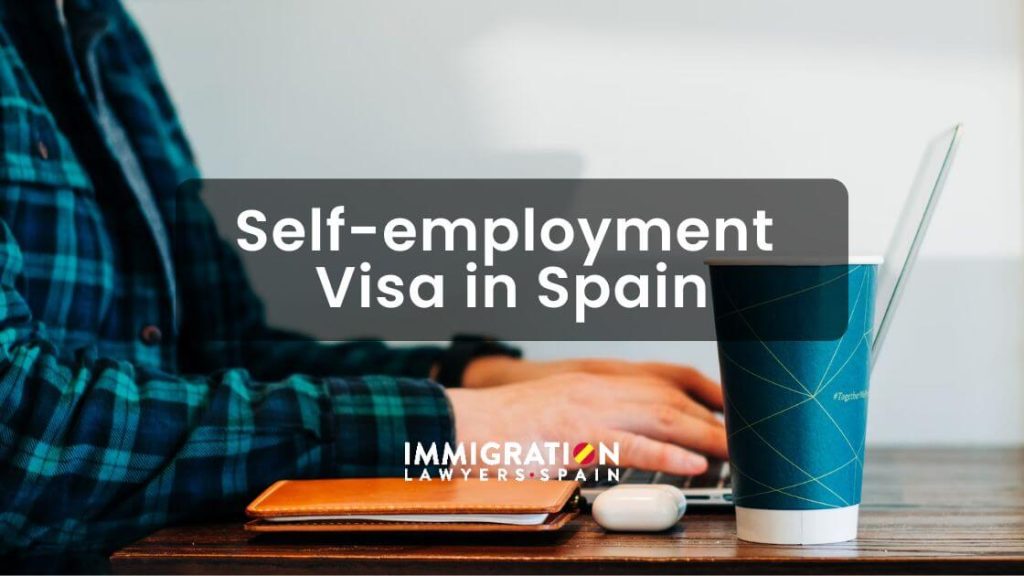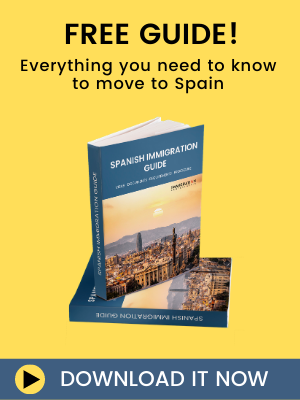
Would you like to start working as a freelancer in Spain, offering your services independently? The,n keep reading. In this article, we will dive deep into everything you need to know about the self-employment visa in Spain.
From the exact list of requirements you must meet, documents to prepare (including your business plan, an essential part of the application process), to useful tips that will help you enjoy a successful application.
Content
ToggleWhat is Self-Employment or Freelance or Autónomo Visa?
The freelance or self-employment visa is the work authorization that allows you to legally live and work in Spain as an independent professional who is not employed by a company but offers his or her services as an individual.
This self-employment figure is called “autónomo” in Spain, hence, you will also see this work permit mentioned as “autónomo visa”.
Nevertheless, it’s official name in Spanish is “autorización de residencia y trabajo por cuenta propia“.
The first thing you must understand is that the freelance visa is a 1-year residency permit that will be valid in 2 different types of scenarios:
- To exercise your work as an online marketer, graphic designer, consultant, or any other profession where you have several clients or offer your services as a contractor.
- If you launch a business in Spain and you will work as an administrator
This last point is very important, as the freelance visa is not the same as an entrepreneur visa.
The entrepreneur visa allows you to launch your own company in Spain when your business initiative involves a high level of technology (use of AI, big data, etc.)
Hence, in case you are creating something brand new that does not exist in the market, you will apply for this startup or entrepreneur visa. But if you decide to open something that already exists, then the self-employment visa will be the go-to option.
Who can apply for Self-employment visa?
As we have mentioned above, there are 2 types of foreigners who are eligible for a self-employment visa:
-
Individuals who want to work as feelancers (“autónomos”). Those planning to work independently in a profession or trade, such as consultants, designers, IT professionals, artists, or any other self-employed activity.
-
Entrepreneurs starting a small business. If you plan to open a local business (e.g., a shop, restaurant, or service company), you can also apply for this visa, as long as you demonstrate its feasibility, market demand, and financial viability.
In both cases, bear in mind that the applicant must be a Non-EU/EEA/Swiss Citizens: That is because this work permit is for third-country nationals who do not have the right to work freely in Spain under EU regulations (that is, three a green card or EU registration certificate).
Finally, it will be those who meet the full list of requirements who can apply for this visa. Let’s explore that list in depth.
Spain self employed visa requirements
If you want to apply for a freelance visa in the Spanish territory, these are the requirements you must meet:
- You can’t be a Non-EU/EEA/Swiss citizen
- You must prepare and submit a business plan, detailing how you are planning to attract customers, get financing, and demonstrate how you will create a positive economic impact for the Spanish economy and labor market
- In case your profession requires it, demonstrate that you have the sufficient working experience and qualifications to perform your job. If your profession requires a specific certification or license in Spain (e.g., lawyers, doctors, engineers), you must prove you meet the legal requirements. This may imply homologating your title in Spain
- Demonstrate you have sufficient funds to cover your living expenses in Spain and also your initial business operations. As for yourself, you will have to demonstrate 100% of the IPREM, which is 600€ per month or 7200€ per year.
- No criminal record. You must provide a criminal record certificate from your home country and any country you have lived in for the past five years.
- In case it applies to your business, you will have to submit any activity permits and licences required for its operation
Spain freelance visa income requirements
The economic requirement for Spain’s freelance visa (self-employment visa) is perhaps one of the most important requirements.
You will have to prove sufficient funds in 2 different areas:
- Your capacity to cover your living expenses and sustain yourself in the country
- The resources the company needs to jumpstart its operations
In the first area, applicants need to prove a minimum income threshold is 100% of the IPREM, which is €600 per month or €7,200 per year, though authorities often expect a higher amount to cover business expenses.
If the applicant brings family members, the required income increases: an additional 50% of the IPREM (€300/month) for a spouse and 30% per child (€180/month). For example, a freelancer with a spouse and one child would need at least €1,080 per month (€12,960 per year).
And then we have the second scenario: covering business expenses. The exact amount will depend on the type of business activity and what is defined within the business plan.
Immigration authorities will assess whether the self-employed activity can generate a stable income. Typically, this amount would be between €10,000–€15,000, to cover initial living costs and business setup, even though it depends on each particular case.
How to apply for a Self-Employed Visa in Spain?
The process to obtain a self-employed visa starts at your country of origin, more precisely at the Spanish Consular Office.
That is, as opposed to many other residencies in Spain, you CANNOT apply for this visa as a tourist.
Nevertheless, it is also possible to modify from an existing residency authorization, like a non-lucrative visa or student visa, into a freelance visa.
But focusing on the general case, let’s see how the process works:
- The initial step is to understand all requirements (seen above) and prepare your application file, making sure no document is missing.
- Then, you will continue this process at the Spanish consulate of your country of origin, where you will have to make an appointment first. This process for marking the appointment changes in each consulate (some require an email, others may have an online booking system, etc.). So make sure to check yours
- The consulate will provide the applicant with form EX-07.
- Once the full file is submitted, including this form, the consular office will send all documents to the Immigration Office in Spain
- After 3 months (bear in mind this waiting time can be extended up to 6 months in some cases), the Immigration Office will issue a resolution.
- The Consulate will notify the applicant and grant him or her a visa, with which she will have 30 days to travel to Spain
- Once in the country, the first step will be to register her address at the City Hall in a process called empadronamiento
- With that, it will be possible to make an appointment at the immigration office to register her fingerprints (together with the payment of the corresponding administrative fee)
- 30 to 40 days after that, the applicant will return and pick up the physical residency card, called TIE
Renewal of self-employment visa
The renewal of the self-employment visa in Spain must be done between 60 days before and 90 days after its expiration.
If approved, the renewal extends the permit for four more years, which means that after that, the applicant will be eligible for long-run residency.
To qualify for this freelance visa renewal, the applicant must continue to meet all necessary requirements she had to meet during the initial application:
- One key requirement is proving that the self-employed activity has been maintained. The applicant must remain registered as an autónomo (freelancer) in both the Social Security system and the tax office. Evidence of ongoing business activity, such as invoices, tax returns, or accounting records, may be required.
2. It is also essential to be up to date with all tax and Social Security payments. If there are outstanding debts, they must be resolved before you can apply for renewal. The authorities will verify compliance, and any unpaid contributions could result in denial.
3. The applicant must also demonstrate sufficient financial means to support themselves. Generally, income should be above the IPREM threshold (7200€ per year), and financial statements or tax declarations will be needed to prove economic stability.
4. Valid health insurance is another important requirement. If the applicant is enrolled in Spain’s Social Security system, this will suffice. Otherwise, private health insurance covering Spain is mandatory.
The application is processed through the Extranjería office, and the decision usually takes up to three months; even though with current delays, this period may take 4, 5, or even 6 months.
If the renewal is approved, the applicant receives a new residence and self-employment permit valid for four years. If denied, an appeal can be filed within one month of the rejection.
Get in touch with our lawyers and let us guide you step by step:





